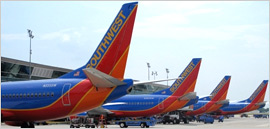 There's beauty in simplicity. There are
also revenues. In fact, consumers are willing to pay more than $30 billion for simpler products and experiences with brands. And 80% of consumers are more likely to recommend a brand because it
provides simpler experiences and communications.
There's beauty in simplicity. There are
also revenues. In fact, consumers are willing to pay more than $30 billion for simpler products and experiences with brands. And 80% of consumers are more likely to recommend a brand because it
provides simpler experiences and communications.
Global strategic branding firm Siegel+Gale, which has just released its third annual Global Brand Simplicity Index, measures what
the firm calls "perceived points of complexity and simplicity" from surveys of some 6,000 consumers in Europe, the Middle East, Asia and North America. The study has generated a ranking of top brands
that consumers deem the simplest.
Howard Belk, co-president, CEO and chief creative officer at Siegel+Gale, tells Marketing Daily that the results are not an
idle exercise in semantics, as brands with a high simplicity score also enjoy strong revenue and stock performance. "One thing that was amazing to us is that a couple of years ago when we did this, we
put the top ten performers into stock indices. They have outperformed over three years, by a lot, including the down years of 2009 and 2010," he says. In the survey, U.S. consumers said they would pay
up to $5 billion or $3.3 billion more, respectively, for simpler products and experience.
advertisement
advertisement
Facebook may be the exception that best proves his point, with its performance in the
Siegel+Gale study tracking its performance on Wall Street. The social media site, way down the simplicity list, is at #118 out of 125 brands, with users saying they’re frustrated by
Facebook’s “incomprehensible” personal privacy policies, frequent changes to the interface and a lack of usability in general.
Indeed, in the study,
consumers rank social media among the most complex sectors in the U.S. (#19 out of 25 industries), behind even banking, utilities and telecommunications. Another category that is hurting for
simplicity is travel, although Southwest (#17), Kayak at #25, Holiday Inn at #38, Best Western at #43 and Budget at #51 bucked the trend to some extent. But US Airways at #117, Amtrak (yes, it still
runs) at #116, American Airlines at #101 and Delta Air Lines at #99 lagged. Insurance, not surprisingly, is way down the list.
Consumers in the U.S. put Internet search and
restaurants at the top for simplicity. Restaurants -- QSR restaurants, to be specific, since the global restaurant brands are all in that category -- dominate the top-ten list, with Subway at number
one, followed by Dunkin’ Donuts, (#2), McDonald’s (#8) and Starbucks (#9). Filling out the top ten are Google (#3), Amazon (#4), Netflix (#5), Apple (#7) and Zappos (#10). Worldwide,
the top ten are Google, McDonald's, Ikea, C&A, Apple, Pizza Hut, Nokia, Yahoo, Carrefour and Aldi.
Belk says there is a direct correlation between the idea of simplicity
and transparency, so that the more consumers think a company is acting the Svengali with a veil of deception (banks, mortgage, Facebook) the lower the score. "I think it's a trust issue. One of the
findings year after year is that people equate complexity with lack of trustworthiness. So these companies on top are being extremely clear about messaging; their products are easy to understand, and
they are keeping promises they make. When people buy their products, they get what they expected."
Social media accelerates that effect. "Human nature makes one more likely to trash
a bad experience than promote a good one," says Belk. That is amply demonstrated by the brand on the very bottom of the list: Ryan Air. "If you want to use the bathroom, you have to pony up a pound,"
he notes. "People think they bought a ticket to get from here to there, but everything costs them more."
Among automakers on the list led by Honda worldwide were Toyota, Volkswagen
and BMW. In the U.S., VW leads, followed by Toyota, Honda, and Ford.